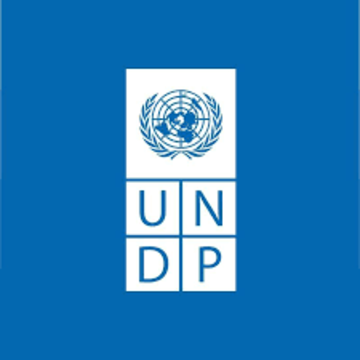NEWS
January 29, 2019

IN BRIEF
Liberians living in close knit communities with a history of violence are still grappling with the issues of security and the rule of law in the society. By UNDP Liberia Liberians living in close knit communities with a history of violence are still grappling with the issues of security and the rule of law in the society. People tend to vent their anger at each other especially in areas where there is demographic pressure on limited resources. Logan Town, on the outskirts of Monrovia, is home to a community Justice Team. Mediators work with the community to resolve issues and [...]
SHARE
Liberians living in close knit communities with a history of violence are still grappling with the issues of security and the rule of law in the society.
By UNDP Liberia
Liberians living in close knit communities with a history of violence are still grappling with the issues of security and the rule of law in the society.
People tend to vent their anger at each other especially in areas where there is demographic pressure on limited resources.
Logan Town, on the outskirts of Monrovia, is home to a community Justice Team. Mediators work with the community to resolve issues and keep the peace.
Under the UNDP Rule of Law, Justice and Security Programme, the Governments of Sweden and Ireland support the effective use of the Alternative Dispute Resolution mechanism in communities like Logan Town and West Point in Monrovia, Montserrado County.
John Kamma is the Project Officer of the Community Justice Team in Logan Town on the Bushrod Island.
Mr. Kamma says Mediators help to resolve conflicts, ensuring that they do not escalate into violence.
“We think that these kinds of disputes undermine growth and development in the lives of ordinary people” says Kamma. Many disputes can be resolved in the community.
These Mediators are well known in Logan Town, often going door to door to raise awareness and make sure everyone knows who they are and what they do.
This allows the court to allot more time and resources to process more serious cases, taking the stress off the formal Justice system, while also saving people in the community time and money they don’t often have.
John says the total cost to resolve a case going through the formal system is no less than $150 US dollars.
“The cost associated with it is very high, considering that our people live below less than $2.00 USD a day. We appreciate the support of our partners: Sweden, Accountability Lab, Irish Aid and UNDP. They are doing a good job to help Liberians understand the essence of the ADR process/intervention and bring harmony, stability and peace to destitute communities,” notes Kamma.
Maintaining peaceful communities takes a concerted effort. Mediators work at the grassroots level to resolve conflicts, which helps ease the burden on the formal justice system as well as delivers satisfactory resolution to the people involved.
According to CJT Manager and Chief Mediator, Rockson Wollor, they have mediated over 150 cases since the commencement of the programme in 2017.
“We have found out that since people got to know about the existence of the center, more people are taking advantage of the services being offered with cases.
Mr. Wollor is recommending an expansion of the programme through the establishment of mobile units. “There is a need to expand the programme. The mobile units help the team reach out to more people in other communities”
The Community Justice Team in Logan Town has had great success in the handling of its cases. “This mediation effort takes the stress off the judicial system and helps reduce time, money, and other bureaucracies experienced by parties involved in misdemeanor cases. Community members are satisfied/happy with what we do,” says Rockson Wollor, the Head Mediator/Coordinator of the Logan Town Community Justice Team Mediation Center.
Abu Kromah knows firsthand the result of the CJT. His wife walked out after he refused to listen to her concerns about his obsession with football. He turned to the mediators to help him find solutions.
“She left the house for about 2 weeks. One week was even unbearable for me, so I had to do something fast. I tried other options and no way, so Citizens’ Bureau came and helped me out. I am so happy about that and today, my home is going perfect.
According to Christina Cummings, Chairperson of the Logan Town Women’s Group, the ADR mechanism has also helped vulnerable women improve their lives at home.
“Sometimes we get problems like persistent non-support, domestic abuse against women, etc. When this office was not here, we would normally go to the police and they will handle it. But since this is the community peace forum, we come here and we get the same redress. So we work hand in hand,” intimated Cummings.
The ADR mechanism is also in Gbarnga and Kakata in Margibi and Bong Counties respectively.
UNDP partners with a local organization, Accountability Lab, to ensure that residents of these communities take advantage of the services.
Anthony Selma, Chief Operating Officer of Accountability Lab Liberia says people are beginning to see the ADR as a way of finding justice.
“It’s less expensive, bureaucratic, and people are beginning to see it as a model for replication in other communities” emphasized Selmah.
The Centers handle/mitigate misdemeanor cases like disorderly conduct, simple assault, debt, domestic issues, and sometimes boundary disputes.
There are 9 mediators in each location (50% women, 50% men) and 1 head mediator, and they all work closely with law enforcement officers and the District Representative office.
UNDP also provides support to Accountability Lab Liberia to train mediators who form part of the Community Justice Teams (CJTs).
